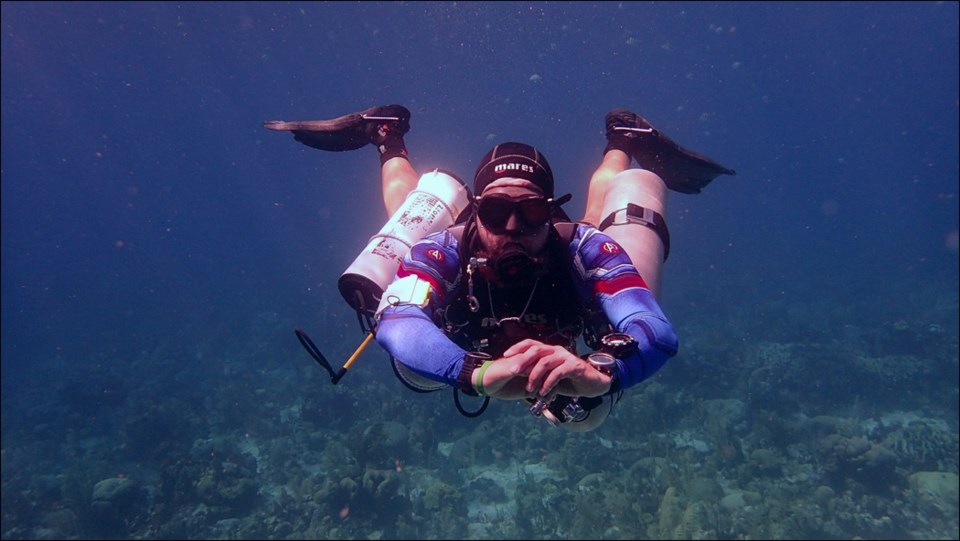When Chris Willey was a student in Flin Flon, he couldn’t have anticipated the path his life would take.
“I wasn't eco-friendly, I couldn’t care less and never saw the ocean till I was in my late 20s,” he said after the presentation.
“I kind of fell in love with the ocean. I started learning about it and started realizing the problem – that's actually what got me into conservation. When I was a kid I didn't litter, but if I saw someone else's garbage I wasn't picking that up. Now we'll go and do deliberate dives against debris.”
Willey now works as a high level dive instructor at a resort in Honduras. Recently, he took advantage of a trip back to Flin Flon to chat with students at his former high school, Hapnot Collegiate. The presentation touched on shark preservation, ocean cleanup and the fight against invasive lionfish.
The conversation was part of Project Aware week. From Sept. 14-22, divers from around the world encourage protection of the world’s oceans and awareness on the issues the biome faces.
Willey has pulled up garbage from around the world during over 100 dives. He’s pulled up some unusual garbage, including a mitten that had the rest of his cleanup crew baffled.
“I brought [the mitten] up and of course, nobody knew what it was,” he said, laughing.
“That mitten didn't come from the Caribbean, that came from somewhere else... from labels, you can tell. We’ve got stuff from Africa, stuff from England, Canada, USA - everything in the Atlantic is connected, it's one ocean.”
Willey is at the forefront of the Atlantic fight against the invasive lionfish. He designed a course, now approved through the Professional Association of Diving Instructors (PADI), to teach divers how to hunt and kill lionfish. Lionfish, which produce a venom that can be lethal for other aquatic life, outcompete native fish in the area, disrupting and causing major damage to ocean ecology.
The fight against lionfish in the Atlantic has been characterized by aggressive human interaction. Lionfish are hunted and eaten by humans directly. Different organizations have partnered with chefs to create lionfish cookbooks to encourage people to eat the fish. Previous efforts to teach native predators to eat lionfish were abandoned.
“The new philosophy is if we're going to act as the predator, we act as a predator,” Willey said.
“We were just teaching the fish that divers our source of food.”
Willey, now 35 years old, fell in love with the ocean after going on a vacation to the Caribbean. Since then, it’s been accomplishment after accomplishment under the water. He’s discovered a shipwreck site, has helped identify new species and even proposed to his fiancée during a dive.
“I was having problems with my job, everything was just kind of going down,” he said.
“It was actually during 2012, when the world was supposed to end. She kind of joked around said, ‘Well, if it's going to end, let's let it end in paradise.’ So we booked the trip and went to the Bahamas.”
Willey is back in Manitoba to sort out his passport and visa situation, but hopes to return to Honduras soon.
“My life was dead. Nothing excited me,” he said.
“[Now] I love my job. Every day, I look forward to going to work.”




